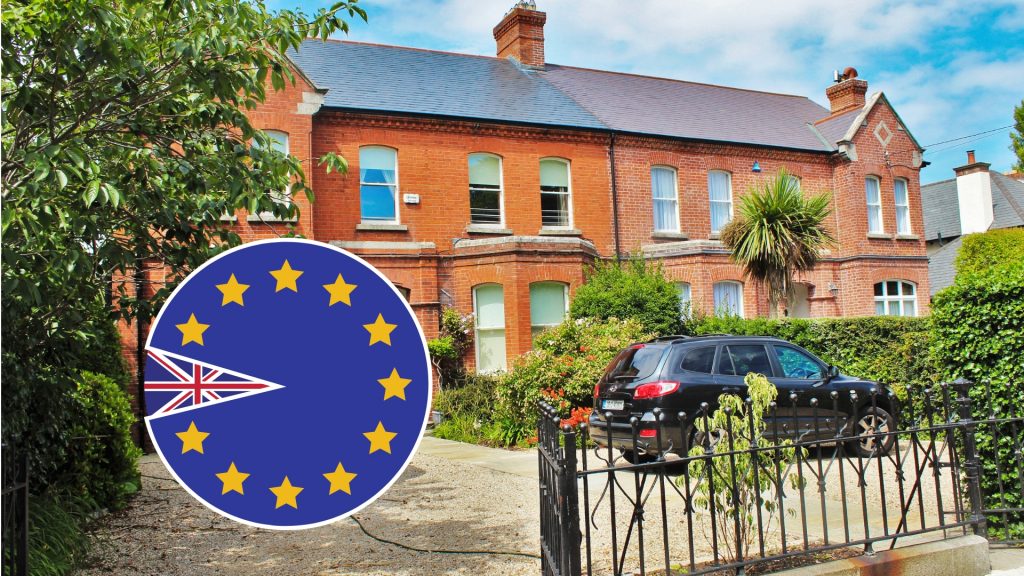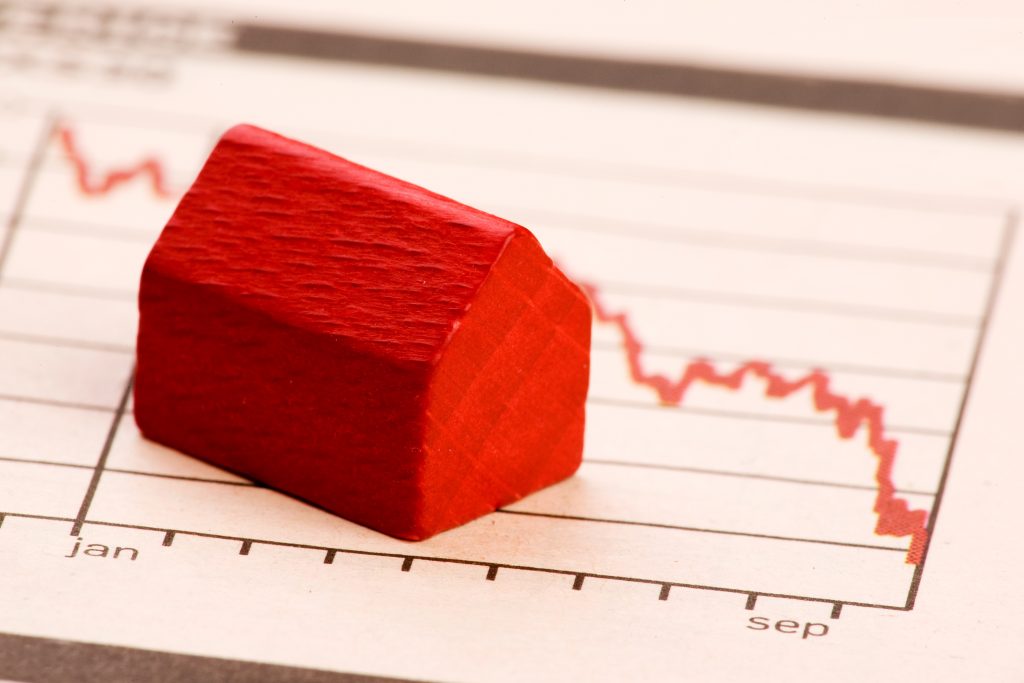
In June 2016 when I was still recovering from the shock of the UK’s historic vote to leave the European Union, I wrote a very popular discussion on what affect the act would have on Ireland’s property market. I didn’t get it too far wrong.
More uncertainty was a given, but who could have guessed how bad it would really be, here four years on. That alone held up the Irish property market, especially in 2019, as fears made people sit on their hands and not make any major investment or lifestyle decisions.
Falling UK house prices I also got right, along with more investment and business moving to Dublin over the UK. Irish expats also started to return in greater numbers. What I did get wrong was predicting a drop off in English buyers coming to Ireland, in fact their numbers increased and I now have a nice little flow of exiles looking to make modern, socially liberal Ireland their home.
After 4 years of relentless Brexit-watching (my twitter talked of little else), this new crisis makes the old one pale in comparison. Substantive, unpredictable and far reaching, Covid19 is altogether more serious for both the nation’s health, wealth and survival. It makes Brexit seem like moving the deck chairs around on the Titanic.
Out of the frying pan, into the fire.
How it will affect Ireland’s economy, is more than just a localised question. I’m shocked at how quickly a health crisis became an economic crisis, threatening every economy in the world to potentially a great extent than even the 2008 Great Recession. Countries from the US to the UK, despite hard right governments, are embracing socialist policies and wholesale income guarantees.
Ireland seems to have responded quickly and decisively both medically and financially. We have an advantage here as an island state and one of the most rural, least dense countries in Europe. Yet even if the virus is contained here and the economy reopens, we still risk catching a cold – economically speaking – from the wider world markets, especially our two anglophone neighbours.
Lockdown, shutdown.
So how has the property market responded so far. Well, not bad initially. I’ve heard nothing of wide spread collapses in sales that we would often hear of in a rapid downturn as serious as this. Most sales agreed before the Corona crisis really invaded public consciousness are continuing on. Buyers seem fairly happy to have secured a home in what was a competitive and resurgent market in the first 2 months of 2020. Solicitors are working from home or small ones from their private offices, keeping sales going while we all shelter at home.
New listings are also largely off the cards. No homeowners wants an unknown agent walking into their home right now, and as most of our clients are generally older downsizers, it would be good practice for us to be doing it either.
New sales however have largely ground to a halt. We scraped in last viewings in the second week of March – with our short-lived “Hygienic Home Viewings” stance – but since then there has been a collapse in interest and no one wants to me touring houses when we’re locked down. Like many other agents, we have been offering virtual home tours which is helpful but few buyers will submit a final offer without having walked through the house at least once themselves.
With some hope, the effective management of this crisis in Ireland will mean we will seem some parts of the economy reopening in the next couple of months. If schools, workplaces and some retail can reopen in May or even June, there is some hope that we can bounce out of this storm without a major domestic impact on the economy, and correspondingly the housing market. The way we operate will have changed (I’ve already sworn off the handshake for life) but we can operate viewings and valuations within our hygienic guidelines or virtually at first.
So which way will prices go?
That’s the million euro question.. or €950,000 question. Or is it €900,000 now?
As with any crystal ball gazing, none of us knows what will happen with the housing market and house prices over the next 6 months, 12 months or even the long term. Most agents and property ‘experts’ within the industry are putting on a brave face and saying things are fine. Most outside the industry always like to cheer that it’s high time for a correction. So who is right and what can be believed.
3 Reasons Prices Might Stay Strong

1. Demand Remains Strong
Even in recent weeks with society on lockdown and people fearing for their health and often their livelihood, buyer enquiries haven’t dropped completely off. We’ve posted new listings and seen rapid response of calls and enquiries. Even older listings are getting more hits on the websites, as more people are at home with time to browse perhaps. Others may be finding lockdown a strain on their family in a too-small house and make up their minds it’s time to up-size.
There are those who smell a price correction in the water and enter the market trying to bag a bargain. However we’ve seen from similar market shocks, the Dublin market in particular is very resilient. Any small softening of prices is met with a surge of demand, as there has been for a long time consistently more buyers than sales on the market to meet them all. This generally holds and even pushes prices on their steady upward path.
2. Supply Remains Tight
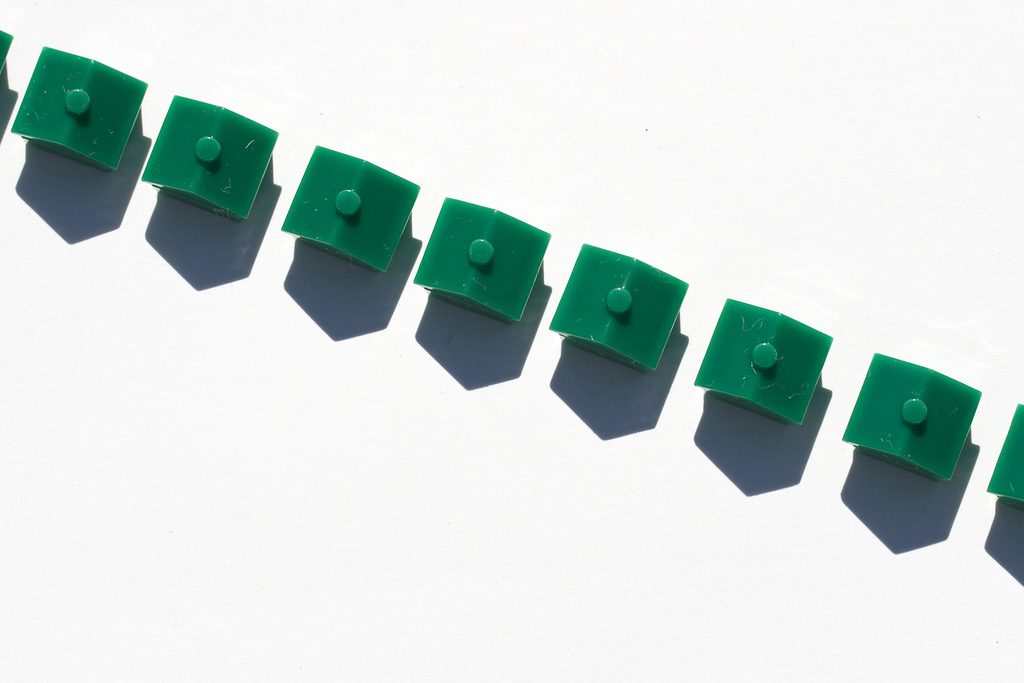
The main driver of property price growth – across the whole country but more acutely in Dublin and its surrounds – has been a mismatch in supply and demand, largely due to a fundamental lack of new construction. The Corona Crisis is only making this problem worse. Current construction sites are shut down and many new ones are likely on hold, with uncertainty over future prices only delaying essential developments.
If new construction dries up, and sales of second homes also reduce, it will make the supply-demand mismatch even greater. We will see the resurgent demand seeking out fewer and fewer properties in the short term, and the long term delay in large development schemes will see knock on effects in prices for possible 3 – 5 years.
3. Lending Gets Cheaper
While rumours are banks are currently tightening lending criteria, it’s likely that is only a short term effect of the shut down. Longer term, there is an argument that lending is about to get a whole lot cheaper. With the ECB reacting to the crisis by slashing their base interest rates to negative territory, Ireland’s banks could have the ability to also slash their rates which have consistently been the highest in Europe.

Economist David McWilliams argues Ireland should use this historic opportunity to recapitalise our banks and drop interest rates. That will immediately save the average Irish homeowner €100s every month. It will also make new lending more affordable for First Time Buyers and movers. This could lead to a boom in new lending and an upwards spiral in house prices (while contained at least within the Central Bank’s lending rules of 3.5x multiples of income and Loan To Value percentages).
3 Reasons Why Prices Might Fall
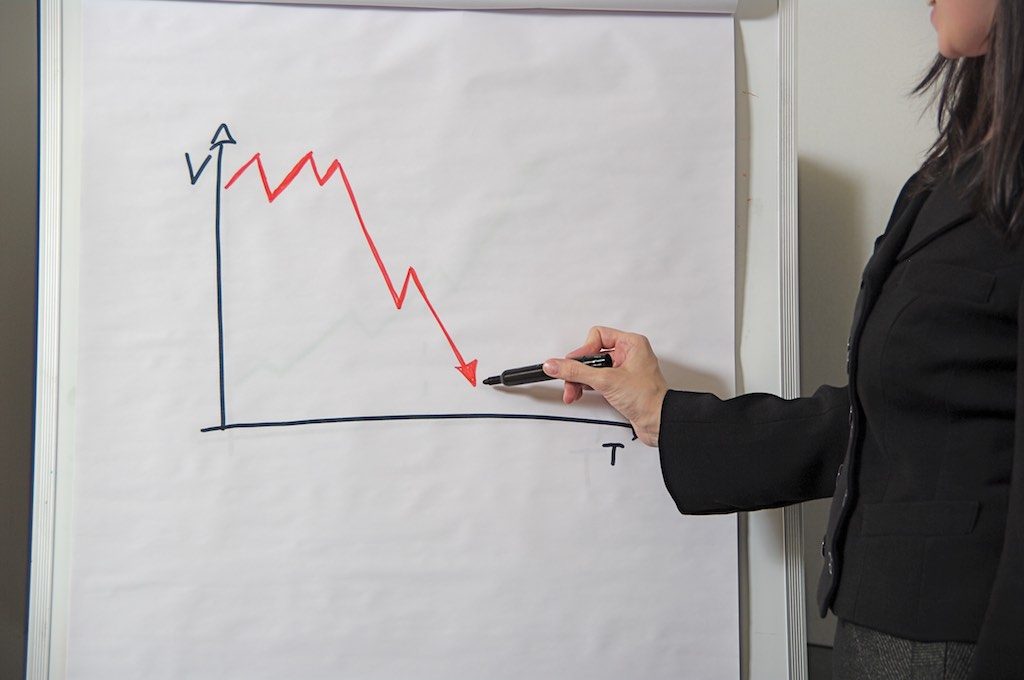
1. Mass Unemployment
The first, most obvious concern is what happens if we continue lockdown for another 2 months, 6 months or even 12 months. Even if the government support for furloughed workers can keep up, we are going to have a great chunk of the workforce out of work or on government assistance. You can bet no one will be qualifying for a mortgage in that situation, or willing to commit to such a major financial decision as a house purchase.
That said, if you look at the types of buyers and sellers who were predominant in the Dublin market in the last 12 months, you might think they will weather the storm a little better. Many sellers (particularly in the upmarket Dublin suburbs where we operate) are more likely to be older, retired downsizers. Also too purchasers are these days more likely to be tech worker types who are on good salaries in Dublin service sector – most of whom have been able to working from home and won’t have seen any reduction in income.
With some hope the Lockdown in Ireland has been a success and much of the country can get back to work in the summer, we might avoid the worst affects on small business and the average worker, and get back into the swing of things in Autumn.
2. Collapse in Confidence
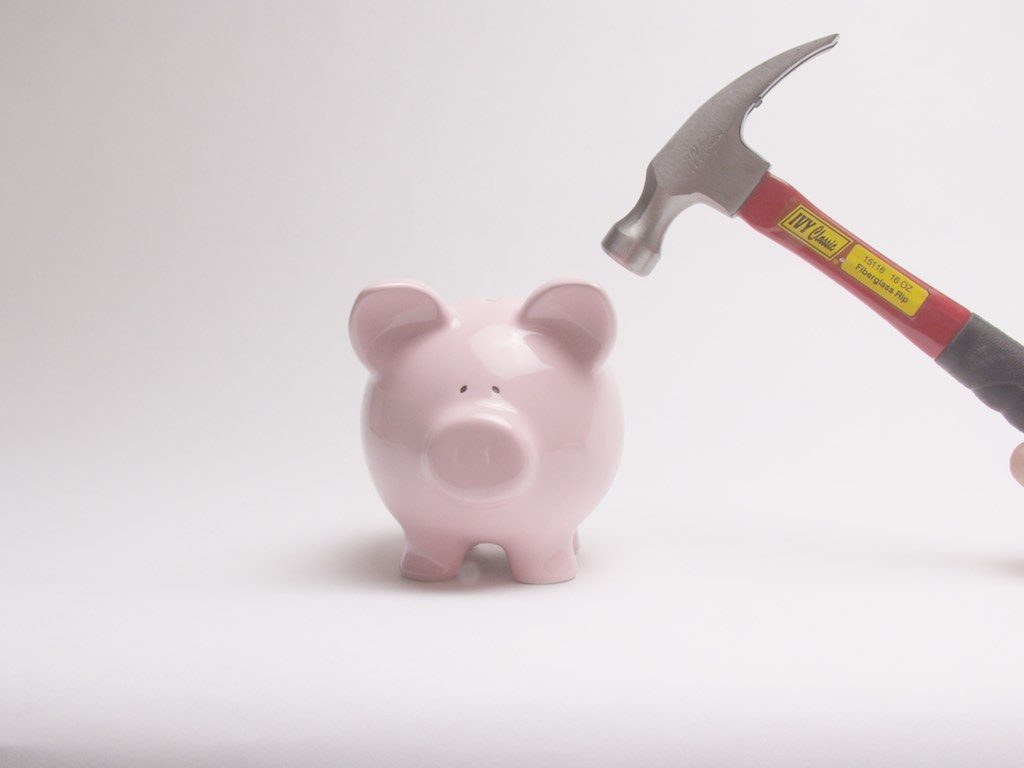
While Ireland and much of the rest of mainland Europe looks to have successfully ‘flattened the curve’ and hopes to open up the economy slowly over the next few months, more cause for concern is our nearest neighbours in the English-speaking world. Both the UK and the USA looks to have made early mistakes in their response to the crisis. Those crucial couple of weeks delay has seen an exponential disaster compared to other nations. Worse still, both governments are itching to get their economies open again too early and are likely to see resurgent spikes in cases and deaths throughout the rest of 2020.
Why does this matter to us in Ireland? Because when our neighbours and trading partners catch a cold (economically speaking), we are likely to catch it too. If both the UK and US get hammered by Corona for the remainder of the year, their economies will fail to function and property markets (particularly London and the South East of England which were already over-valued) will see a more significant collapse.
While there isn’t too many cross-border transactions that will directly impact Irish activity, seeing a major house price crisis in nearby markets has a terrible effect on consumer confidence. The fear that we too will face similar market crashes makes many buyers and sellers hold off purchases or sales until they know what is happening.
3. Global Recession / Depression

Taking ‘catching a cold’ to the next level, it is looking almost a certainty that most world economies will enter a Recession and we might be looking at a Global Depression worse than 2008 or even 1929 if we can’t get control of Corona or find an effective vaccine.
While the Irish economy might reopen in time to stave off the worst effects for our income and house prices in 2020, if a worldwide recession or depression takes hold there will be little stopping us going down with it. The world’s financial money markets are all tied tightly together, as we saw in 2008. In particular the USA is the taps that keep the money flowing internationally, and Ireland’s gets more than its fair share of that cash flow. If the US economy goes into freefall, banks collapse and cash flows dries up – we are likely to see a similar effect in Ireland as we had in 2008.
Reasons For Optimism
Fortunately Ireland is in a very different place from 2008, financially and socially too. Our house prices are still coming off the low base from the last recession, and household debt is at its lowest level since 2004. Our economy has grown faster than any other country in Europe. And we have a government who has taken the crisis seriously, both medically and economically, from the start.
If I were to make the flimsiest of predictions, I can see the Irish housing market getting back on stream in the next couple of months and prices holding their levels for the rest of 2020 – albeit with further reduced transaction volumes. There are always people needing to sell and always those looking to buy while they can. We expect pent up demand from the few months of shut down to come back with a bang, but with fewer houses on the market to feed them, we might even see prices rise a modest amount.
However, longer term I am more concerned. If we see a persistent global recession over 3 quarters or more, we could be looking at a significant downturn lasting 2 to 3 years. If I was a betting man (which I no longer am) I’d say it would be a good time to sell your home in the latter half of 2020, when we get out of lockdown and pent up demand is highest. Predicting beyond 2020 is impossible, but I still believe our property market fundamentals are still there (high demand and lack of good supply) which will hold prices up despite the economic uncertainty. I’d almost rule out any big jump in prices – but I would hope we wouldn’t have a significant crash either.

An uncertain market can be an opportunity to make a good move. Now more than ever, as we are spending so much time at home, we understand the importance of a property that’s right for you.
My guiding principle for house sales is, if you need to make a move, do it when the timing is right for you, don’t try to game the twists and turns of the market. There will still be people needing to upsize, downsize, rightsize – move for work or for family – deaths and divorces, of those we can be sure.

























